
Keynote speakersPlenary Session Marine soundscapes – Human impacts and Blue Economy sustainability in a changing world
Rewriting intertidal ecosystems in the Anthropocene Dr. Werner Krauß is a social anthropologist from the University of Bremen, at the Sustainability Research Center. His main area of expertise is in political ecology, with a special focus on human – environment relationships, climate change and coastal landscapes. His current research covers the area of climate services, the rewilding of tidal ecosystems and what it means to be human in the Anthropocene.
Keynote Speakers
Gaelle Dieulefet is associate-professor (or senior lecturer) PhD and HDR (France) in modern and contemporary archaeology at Nantes University. Fully accredited diver (IIB) specialized in coastal and maritime archaeology. Work focuses on Maritime cultural landscape, transatlantic connections (Europe-America) and the material culture of ship's crews and maritime societies.
Bénédicte Meillon is Professor of English Studies à l'Université d'Angers. She runs the Perpignan Ecopoetics and Ecocriticism research workshop. She has written papers on the ecopoetics of Barbara Kingsolver, Annie Proulx, Linda Hogan, Ron Rash, Strarhawk, and Ann Pancake. Some of her other work has led her to publish papers on Paul Auster, Russel Banks, and Roald Dahl. Her research specifically explores ecopoetics of reenchantment, focusing on magical realism, mythopoeia, neoregionalism, and ecofeminism, with close attention to the intra-actions between human and nonhuman naturecultures and the texture of language itself. She is invloved in the Sea More Blue program.
Pierre Pretou is a historian of the Middle AgesHis work focuses on the history of justice at the end of the Middle Ages, and more specifically on criminal justice and conflicts in the Atlantic regions, the shores and maritime activities. This research therefore crosses the history of justice and maritime history.
Vincent Andreu-Boussut is an associate professor in geography at Le Mans University and at the UMR Spaces and Societies (ESO 6590 CNRS). His research focuses on the heritage processes of coastal natural spaces in Europe and the transformations of nature conservation practices in the context of climate change. He notably coordinates the distance learning master's programs in Territorial Policies for Sustainable Development and Management of Natural, Cultural, and Intangible Heritage and Sustainable Tourism. Links: https://eso.cnrs.fr/fr/node/type-annuaire/7444/3/vincent-andreu-boussut
Vona Méléder is professor in Marine Biology at Nantes Université. Her main interest is to estimate the contribution of tidal flats to the Carbon Budget using remote sensing. Her expertise is the understanding of tidal flats vegetation and algae optical properties, in relation to their biology and ecophysiology. She mainly focuses on the micro-algae communities inhabiting intertidal sediments, i.e. microphytobenthos. She is currently the PI of the Horizon-Europe project Rewrite (2023-2028) for “Rewilding and restoration of intertidal sediment ecosystems for Carbon sequestration, climate adaptation and biodiversity support.” Rewrite ambition is to expand innovative approaches and nature-based solutions for rewilding seascapes constituted by intertidal soft sediment, bridging biodiversity conservation, climate adaptation and social expectations. This ambition is served by an impressively interdisciplinary consortium (25 partners from the academic and private sectors, representing 8 European tidal coastal states, as well as the UK, Canada and the USA) with recognized expertise on the climate-biodiversity nexus, fostering synergies among disciplines such as Social Sciences and Humanities, natural sciences and resources, and ecosystems management. Links: https://linktr.ee/VonaMeleder
Detlev Arendt is Group Leader and Senior Scientist at the European Molecular Biology Laboratory in Heidelberg, Germany. As Co-Chair he is leading and shaping the Planetary Biology Transversal Theme as part of a new program "from Molecules to Ecosystems". He is member of the TREC Steering Committee and TREC Selected model species coordinator. https://www.embl.org/people/person/arendt/
Josep Lloret Romañach is a marine biologist working as senior researcher at the Institut de Ciències del Mar (ICM-CSIC) in Barcelona (Spain) with over 20 years expertise in marine ecology and biology research and training. He created in 2018 and directed till 2013 the Oceans & Human Health Chair at the University of Girona. He is involved in research in the new discipline of Oceans and Human Health, in collaboration with various experts from different disciplines including marine biology, medicine, social sciences and marine resources management. His research focuses on: 1) The impact of the Blue Economy (artisanal and recreational fisheries, leisure boating, cruises, offshore wind farms, etc) on marine ecosystems ; 2) The effects of global change on marine resources and habitats, particularly the vulnerable species and fragile habitats ; 3) The condition (health) of fish and its importance for the preservation of fishery resources; 4) The usefulness of marine reserves as management tools to conserve marine ecosystems; 5) The complex links between the marine ecosystems and human wellbeing taking into account the biological, social, economic and human health aspects
Pierre Cariou, Professor of Maritime Economics at KEDGE Business School (Marseille) & Adjunct Professor World Maritime University (Malmö, Sweden) Pierre Cariou is Senior Professor at Kedge Business School since 2010 and Adjunct Professor at the World Maritime University (2021-2024), Visiting Research Scholar at Cornell University (2021-2022), a founding member of the www.porteconomics.eu platform. He was previously Professor at the World Maritime University (WMU) in charge of Shipping and Port Management specializations (2004-2010) and Associate Professor at the Faculty of Economics and Business Administration at University of Nantes, France (2001-2004). He completed his PhD in 2000 on horizontal and vertical integration strategies in liner shipping at University of Nantes and at Erasmus University of Rotterdam. He is in the boards of many academic journal and published articles related to shipping strategy and maritime safety.
Blandine Laperche, Professor of Economics, University Littoral Côte d'Opale, President of the Research Network on Innovation Blandine Laperche is professor of economics at University du Littoral Côte d'Opale (ULCO) and director ISI-Lab.RIIresearch laboratory. She is President of the Research Network on Innovation (http://2ri.eu), and also Editor in Chief ofRevue d'Economie et de Management de l'Innovation / Journal of Innovation Economics and Management (http://innovations.cairn.info). Blandine does research in Business Economics, Entrepreneurial Economics and Industrial Organization. Her research topics are innovation systems, business strategies, public innovation policies and university-business relations; the innovation trajectories of companies and the strategies for building/protecting their knowledge capital; territorial changes and the circular economy with applications to industrial-port regions.
Gaëlle GUEGUEN HALLOUET, Professor, Director of UMR AMURE, Université de Bretagne Occidentale Gaëlle GUEGUEN HALLOUET is professor of public law at the University of Bretagne occidentale (Brest), member of UMR AMURE since 1999. She has had various collective responsibilities within the faculty of law, economics and AES, and has been head, among others, of the master of maritime activities law in Brest. Specialist in European law, public property law and energy law, she studies in particular the legal regime of commercial and recreational maritime ports, the law of offshore energy production farms and the law of the maritime public domain. She is the author of regular publications on this topic and has supervised several theses in port law and energy law.
For almost twenty years, Lieutenant Olivier JACQ has been in charge of maritime cyber security issues in the French Navy. He has been responsible for the IT security of several major units and sites, during which time he specialised in the cybersecurity of industrial systems. He is now head of the Brest branch of the French Navy's Cyber Defence Support Centre (CSC). This expert centre is responsible for cyber defence training, cyber surveillance and digital investigation for the Navy's operational units. In parallel to his activities, he is also a PhD student at the Cyber Defence Chair for Naval Systems at the Ecole Navale.
Charles Gadea, Professor Emeritus of Sociology at the University of Paris-Nanterre and a member of IDHES, has devoted himself to the study of professional groups or aggregates of professional groups, such as the category of professional and managerial staff. His publications include (with Didier Demazière) Sociologie des groupes professionnels. Acquis récents et nouveaux défis (La Découverte, 2009), (with Paul Bouffartigue and Sophie Pochic) Cadres, classes moyennes: vers l'éclatement? (Colin, 2011), and more recently (with Stéphane Olivesi) Les métiers de la vigne et du vin (Presses universitaires de Grenoble, 2019) and (with Roland Lardinois) Les mondes de l'ingénieur en Inde.XIXe-XXIe siècle (Classiques Garnier, 2022). Claire Flécher teaches at the IETL (Institut d'Etude du Travail de Lyon) and is a researcher at the Max Weber Centre. Her research focuses on the study of work and employment in a globalised context. The aim is to gain a better understanding of what globalisation produces in terms of work organisation, migratory routes and career paths, and regulation (regulations, collective bargaining, trade union action, etc.). Her current areas of research are maritime transport and shipbuilding. She has published À bord des géants des mers. Ethnographie embarquée de la logistique globalisée (La Découverte, 2023).
Chris Bowler is research director dddat the CNRS and director of the Phytogenomics Laboratory at the Institut de biologie de l'École normale supérieure in Paris. He received his PhD from the University of Ghent in Belgium, followed by postdoctoral studies at the Rockefeller University in New York. In 1994 he established his own laboratory working on signaling in plants and marine diatoms at the Stazione Zoologica in Naples, Italy, and in 2003 he took up his current position in Paris. He has been a member of EMBO since 1995, received the CNRS Silver Medal in 2010, ERC Advanced Awards in 2012 and 2018 and the Grand Prix Scientifique de la Fondation Louis D de l'Institut de France in 2015. In 2016-2017 he was a Fellow at the Radcliffe Institute of Advanced Studies at Harvard University, USA. In 2018 he was elected member of the French Academy of Agriculture, and during the academic year 2020-2021 he held the annual chair as Professor in biodiversity and ecosystems at the Collège de France. His main research interest is the understanding of the response of plants and marine diatoms to environmental signals, through functional and comparative genomics. Since 2021 he is the scientific director of the Tara Oceans project to explore the biodiversity, ecology and evolution of plankton in the world's ocean. In 2023 he was elected member of the Accademia dei Lincei in Italy. Jeroen Gillard is an associate professor at California State University, Bakersfield. He earned his PhD from Ghent University in Belgium, where he studied the molecular and physiological regulation of the pennate diatom life cycle. In 2011, he moved to the United States for a postdoctoral fellowship at the J. Craig Venter Institute in San Diego. In 2015, he joined the Biology Department at CSU Bakersfield as an assistant professor. Dr. Gillard is passionate about guiding young professionals through education and research involvement. His research primarily focuses on understanding diatom cell biological dynamics in relevant artificial environments using various experimental methodologies. Since 2020, he has been an active member of the Genomics Education Partnership, a collaborative initiative that integrates active learning into the undergraduate curriculum through Course-based Undergraduate Research Experiences (CUREs) centered on bioinformatics and genomics. Dr. Vandana Vinayak did her PhD in Biochemistry from Kurukshetra University, Haryana, India in 2008. She was awarded President award from Ex President of India also known as Missile Man of India Dr. A.P.J Abdul Kalam for her PhD work in 2009 on identifying ISSR and protein markers rich in sucrose content in callus cultures of Saccharum interspecific hybrids. In 2009 she joined as Senior Scientific officer Biology at State Forensic Science Laboratory, Haryana, India where she solved about 4000 criminal cases of death due to drowning using diatom test. Thereafter her journey with diatoms started. Dr. Vandana Vinayak joined as Assistant Professor at School of Applied Sciences, at Harisingh Gour University (A Central University), Sagar, Madhya Pradesh, India since 2013. She was embarked with many research projects on diatoms and she widened her field in diatoms in the field of biofuel, bio nanotechnology, fuel cells, pigments and various other applied sciences in her diatom nanoengineering and metabolism laboratory. These include research grants (costing about 60000000-INR/721032USD) from Department of Science and Technology (DST), Government of India (GOI) ; Department of Biotechnology (DBT), University Grants Commission (UGC), (GOI); Indian nanoelectronics user program from Ministry of Electronics and Information Technology, (GOI), National Centre for Photovoltaic Research and Education (NCPRE) India Science, (GOI); Technology & Innovation, Science and Engineering Research Board (SERB), (GOI); Indo-French Centre for the Promotion of Advanced Research (IFCPAR/CEFIPRA), (GOI) to name a few. She has notable publications, patents and some 32 awards and is included in top 2% scientist list made by Stanford University USA released by Elsevier on Oct 3, 2023. Justine Marchand is Assistant Professor in Le Mans University (France) in the ‘Organism Biology, Stress, Health, Environment’ laboratory and the research group 'Metabolism, Molecular Engineering of Microalgae and Applications'. Her research is orientated toward transcriptomic and bioengineering studies in microalgae and aims at understanding the regulatory mechanisms leading to modifications of the management of carbon atoms under stress conditions in marine microalgae and especially Phaeodactylum tricornutum. A special attention is paid to identify the role of transcription factors in the regulation and reorientation of carbon metabolism in order to control carbon fluxes toward compounds of interest (lipids, carotenoids). Justine is also working on the development of innovative methods for extracting molecules from microalgae such as pulse electric fields.
Below the Surface: A Journey in Underwater Acoustics When people think about the IoT and CPS---provided they recognize these terms at all---they have smart cities, machines, homes and other things naturally residing above the water surface on their minds. However, more than 70% of our Earth are covered by water and there are many use cases for smart sensing and acting, if you think about it. It was a rather unrelated decision during my PostDoc time, when I literally switched sides---of the water surface, from above to below. Coming from a world where devices cost some ten Euros and wireless connectivity adds another few, I was faced with a different world where you either had no connectivity or you had to spent (another) fortune. While this may be feasible in certain domains---e.g., 6-to-more-digit price-tag underwater robots---it is absolutely ridiculous for small environmental sensors or In this keynote talk, I will talk you through my 10-year journey in underwater acoustic communication. I will give an overview of these challenges and the achievements of my group with particular focus on underwater communication, localization, and navigation for autonomous networked systems including micro mobile robots. I will also shed light on existing links and ongoing research to our related research above the water surface with a particular focus on acoustic backscatter communication.
|

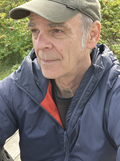 Werner Krauss, Social Anthropologist, Sustainability Research Center, University of Bremen
Werner Krauss, Social Anthropologist, Sustainability Research Center, University of Bremen S.1 Maritime archeology
S.1 Maritime archeology
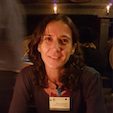
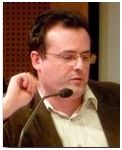

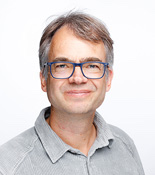
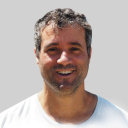

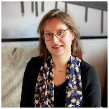

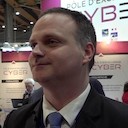


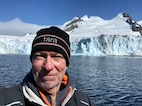
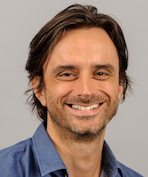

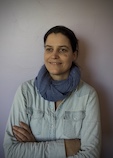
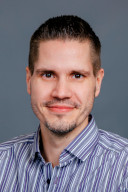 Christian Renner
Christian Renner
